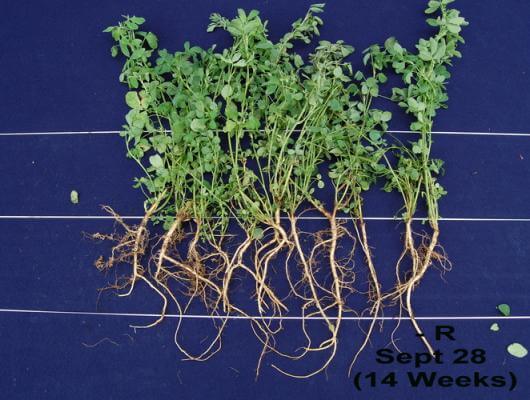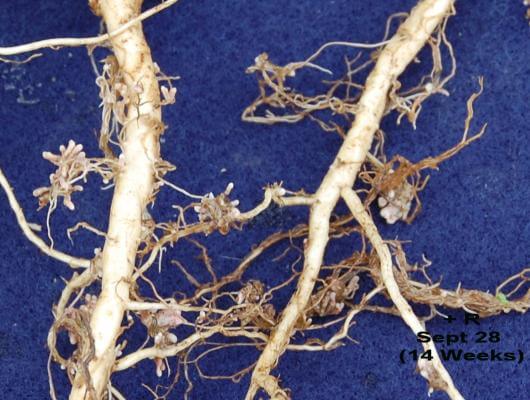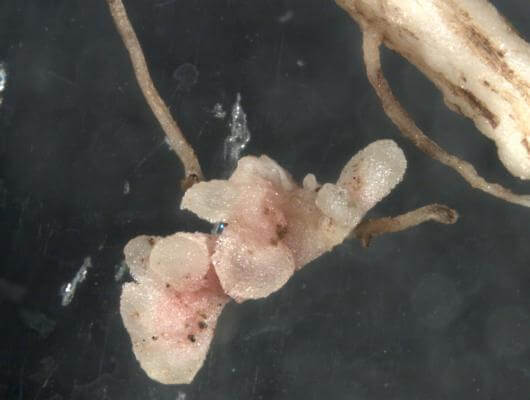What are Rhizobium bacteria?
Rhizobia are free-living soil bacteria that form a specific and agriculturally important relationship called “nitrogen fixation” when they infect the roots of legume crop species to form nodules. This relationship is defined as a “symbiosis” because it is mutually beneficial to both the Rhizobium and the host legume plant. In this symbiosis, the plant receives reduced nitrogen for its growth through nitrogen fixation, while Rhizobia are provided energy-containing carbohydrates and nutrients from the plant. The symbiosis only takes place when there is a match between a specific species of both the Rhizobia and the legume crop. Therefore, alfalfa is infected only by Rhizobium meliloti, clovers by Rhizobium trifolii, beans and peas by Rhizobium leguminosaeum, etc. Certain chemical signals from the right legume roots must be recognized by the specific Rhizobium species for the infection, nodulation, and nitrogen fixation processes to be successful. The Nitro-Coat® process ensures that Rhizobium of the correctly matched species is applied directly to the coated seed.


